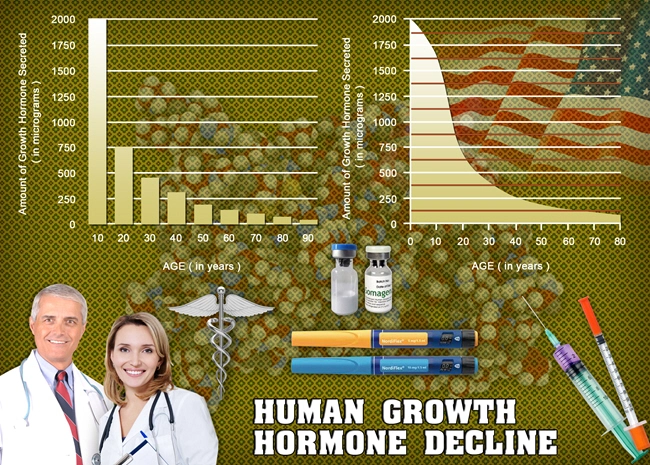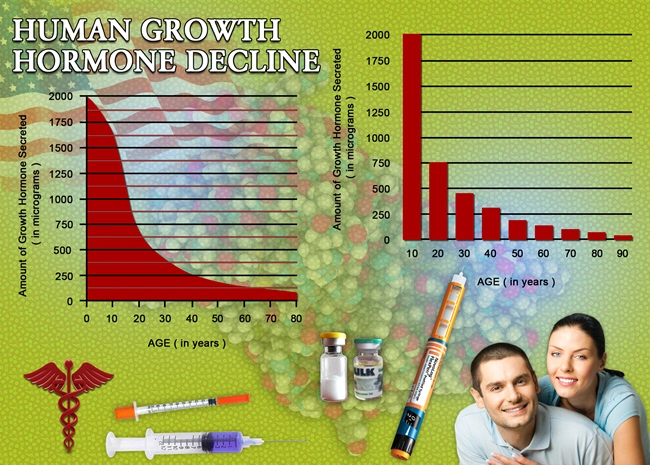
Introduction
Premature ejaculation (PE) is a common sexual dysfunction that affects a significant portion of the male population, leading to distress and dissatisfaction in sexual relationships. This article delves into the findings of a recent national survey that explored the prevalence of PE among American males, with a particular focus on the influence of age, ethnicity, and socioeconomic factors. By understanding these variables, healthcare providers can better tailor interventions and support for affected individuals.
Prevalence and Demographics of Premature Ejaculation
The national survey, conducted across various states, included a diverse sample of American males aged 18 to 70. Results indicated that approximately 20% of the respondents reported experiencing PE, aligning with global estimates. However, the prevalence varied significantly across different demographic groups. Younger men, particularly those in their 20s and 30s, reported higher incidences of PE compared to older age groups. This trend suggests that sexual experience and age-related physiological changes may play a role in the manifestation of PE.
Ethnic Variations in Premature Ejaculation
Ethnicity emerged as another critical factor in the survey. Caucasian and Hispanic males reported higher rates of PE than their African American and Asian American counterparts. These differences may be attributed to cultural attitudes towards sexual health, access to healthcare, and genetic predispositions. For instance, cultural stigma around discussing sexual health issues might deter some ethnic groups from seeking help, thereby affecting reported prevalence rates.
Socioeconomic Factors and Premature Ejaculation
Socioeconomic status also had a notable impact on the prevalence of PE. Men with lower socioeconomic status were more likely to report PE, possibly due to higher stress levels, less access to quality healthcare, and limited educational resources about sexual health. Conversely, those with higher socioeconomic status reported better management and treatment outcomes, likely due to greater access to healthcare services and information.
Psychological and Relationship Impacts
The survey also explored the psychological and relational impacts of PE. A significant portion of respondents indicated that PE negatively affected their self-esteem and relationship satisfaction. Men reported feelings of inadequacy and anxiety, which could exacerbate the condition. Couples therapy and psychological interventions were noted as effective strategies for managing these impacts, highlighting the importance of a holistic approach to treatment.
Treatment and Management Strategies
Effective management of PE involves a combination of pharmacological, psychological, and behavioral therapies. The survey found that while many men were aware of pharmacological options such as selective serotonin reuptake inhibitors (SSRIs), fewer were informed about behavioral techniques like the stop-start method or the squeeze technique. Education and awareness campaigns could play a crucial role in improving treatment outcomes by increasing knowledge about these non-pharmacological options.
Conclusion
The national survey provides valuable insights into the prevalence of premature ejaculation among American males, highlighting the significant influence of age, ethnicity, and socioeconomic factors. These findings underscore the need for targeted interventions that consider the diverse needs of different demographic groups. By addressing these variables, healthcare providers can enhance the effectiveness of treatments and improve the quality of life for men affected by PE. As the conversation around sexual health continues to evolve, it is imperative that research and public health initiatives remain inclusive and responsive to the needs of all American males.
Contact Us Today For A Free Consultation
Dear Patient,
Once you have completing the above contact form, for security purposes and confirmation, please confirm your information by calling us.
Please call now: 1-800-380-5339.
Welcoming You To Our Clinic, Professor Tom Henderson.

- Unravelling the Rush: Unmasking the Realm of Premature Ejaculation [Last Updated On: February 25th, 2025] [Originally Added On: February 25th, 2025]
- Confronting the Clock: Understanding the Science of Premature Ejaculation [Last Updated On: February 26th, 2025] [Originally Added On: February 26th, 2025]
- Unveiling the Mystery: The Underlying Causes of Premature Ejaculation [Last Updated On: February 27th, 2025] [Originally Added On: February 27th, 2025]
- Unraveling the Complexity of Performance: The Psychological Underpinnings of Premature Ejaculation [Last Updated On: February 28th, 2025] [Originally Added On: February 28th, 2025]
- Mastering the Art of Long-lasting Intimacy: An In-depth Look at Techniques to Delay Ejaculation [Last Updated On: February 28th, 2025] [Originally Added On: February 28th, 2025]
- Premature Ejaculation: Debunking Myths and Providing Facts for American Men [Last Updated On: March 1st, 2025] [Originally Added On: March 1st, 2025]
- Sorting Through the Shadows: Debunking the Misconceptions About Premature Ejaculation [Last Updated On: March 1st, 2025] [Originally Added On: March 1st, 2025]
- Introduction Into Early Emission Hormonal Disorders [Last Updated On: March 2nd, 2025] [Originally Added On: March 2nd, 2025]
- Comprehensive Overview of Premature Ejaculation: Causes, Diagnosis, and Treatment Options [Last Updated On: March 3rd, 2025] [Originally Added On: March 3rd, 2025]
- Understanding Premature Ejaculation: Impacts and Management Strategies [Last Updated On: March 4th, 2025] [Originally Added On: March 4th, 2025]
- Comprehensive Guide to Understanding and Managing Premature Ejaculation [Last Updated On: March 5th, 2025] [Originally Added On: March 5th, 2025]
- Understanding and Managing Delayed Ejaculation: Psychological and Behavioral Strategies [Last Updated On: March 6th, 2025] [Originally Added On: March 6th, 2025]
- Managing Performance Anxiety in Premature Ejaculation: Strategies for Psychological and Physical Well-being [Last Updated On: March 7th, 2025] [Originally Added On: March 7th, 2025]
- Mastering the Clock: Hormonal Influences on Ejaculatory Control and Premature Ejaculation in American Men [Last Updated On: March 7th, 2025] [Originally Added On: March 7th, 2025]
- Unraveling the Mystery: A Deep Dive into Premature Ejaculation in American Men [Last Updated On: March 7th, 2025] [Originally Added On: March 7th, 2025]
- Comprehensive Guide to Managing Premature Ejaculation for American Men: Causes, Treatment, and Coping [Last Updated On: March 8th, 2025] [Originally Added On: March 8th, 2025]
- Managing Premature Ejaculation: Natural Remedies and Behavioral Techniques for Male Sexual Health [Last Updated On: March 9th, 2025] [Originally Added On: March 9th, 2025]
- Exploring the Dual-Use Potential of Erectile Dysfunction Medications in Treating Premature Ejaculation [Last Updated On: March 12th, 2025] [Originally Added On: March 12th, 2025]
- Mastering Your Heartbeat: Techniques for American Males to Gain Control Over Rapid Heart Rhythms [Last Updated On: March 13th, 2025] [Originally Added On: March 13th, 2025]
- Mindfulness and Mastery: Transforming Premature Ejaculation Through Conscious Control [Last Updated On: March 15th, 2025] [Originally Added On: March 15th, 2025]
- Managing Premature Ejaculation: Communication, Techniques, and Professional Support for American Men [Last Updated On: March 18th, 2025] [Originally Added On: March 18th, 2025]
- Nervous System's Role in Premature Ejaculation: Causes, Treatments, and Future Research [Last Updated On: March 18th, 2025] [Originally Added On: March 18th, 2025]
- Managing Premature Ejaculation: Diet, Exercise, Stress, Sleep, and Communication Strategies for American Males [Last Updated On: March 19th, 2025] [Originally Added On: March 19th, 2025]
- Managing Premature Ejaculation: Fast Forward and Slow Down Approaches for American Men [Last Updated On: March 20th, 2025] [Originally Added On: March 20th, 2025]
- Managing Premature Ejaculation: A Holistic Approach to Sexual Health [Last Updated On: March 20th, 2025] [Originally Added On: March 20th, 2025]
- Managing Premature Ejaculation: Medical, Behavioral, and Lifestyle Approaches for American Males [Last Updated On: March 20th, 2025] [Originally Added On: March 20th, 2025]
- Effective Techniques for Managing Premature Ejaculation in American Males [Last Updated On: March 20th, 2025] [Originally Added On: March 20th, 2025]
- Anxiety's Role in Premature Ejaculation: Insights and Management Strategies for American Men [Last Updated On: March 20th, 2025] [Originally Added On: March 20th, 2025]
- Premature Ejaculation's Social Impact: Psychological, Relational, and Professional Effects on American Men [Last Updated On: March 20th, 2025] [Originally Added On: March 20th, 2025]
- Managing Premature Ejaculation in Casual Relationships: Strategies for American Men [Last Updated On: March 21st, 2025] [Originally Added On: March 21st, 2025]
- Physical Fitness Boosts Sexual Health, Helps Manage Premature Ejaculation in Men [Last Updated On: March 21st, 2025] [Originally Added On: March 21st, 2025]
- Dietary Strategies to Manage Premature Ejaculation in American Men [Last Updated On: March 21st, 2025] [Originally Added On: March 21st, 2025]
- Countdown Challenge: Exercises to Overcome Premature Ejaculation in American Men [Last Updated On: March 21st, 2025] [Originally Added On: March 21st, 2025]
- Premature Ejaculation: Emotional, Financial Impacts and Treatment Options for American Men [Last Updated On: March 22nd, 2025] [Originally Added On: March 22nd, 2025]
- Premature Ejaculation: Causes, Diagnosis, and Effective Treatment Options for American Men [Last Updated On: March 23rd, 2025] [Originally Added On: March 23rd, 2025]
- Sleep's Role in Enhancing Sexual Stamina and Managing Premature Ejaculation in American Males [Last Updated On: March 23rd, 2025] [Originally Added On: March 23rd, 2025]
- Understanding and Managing Premature Ejaculation: A Holistic Approach for American Men [Last Updated On: March 23rd, 2025] [Originally Added On: March 23rd, 2025]
- Breaking the Silence on Premature Ejaculation: Empowering American Men [Last Updated On: March 23rd, 2025] [Originally Added On: March 23rd, 2025]
- Exploring Non-Pharmacological Strategies for Managing Premature Ejaculation in American Men [Last Updated On: March 24th, 2025] [Originally Added On: March 24th, 2025]
- Managing Premature Ejaculation: A Patient's Journey to Control and Confidence [Last Updated On: March 24th, 2025] [Originally Added On: March 24th, 2025]
- Transforming Premature Ejaculation into Deeper Intimacy and Connection [Last Updated On: March 24th, 2025] [Originally Added On: March 24th, 2025]
- Psychological Interventions for Premature Ejaculation in American Men: A Comprehensive Guide [Last Updated On: March 24th, 2025] [Originally Added On: March 24th, 2025]
- Understanding Premature Ejaculation: Biological, Psychological, and Treatment Insights [Last Updated On: March 24th, 2025] [Originally Added On: March 24th, 2025]
- Managing Premature Ejaculation: Understanding and Overcoming Sexual Dysfunction in American Males [Last Updated On: March 24th, 2025] [Originally Added On: March 24th, 2025]
- Overcoming Premature Ejaculation: Success Stories and Strategies for American Men [Last Updated On: March 24th, 2025] [Originally Added On: March 24th, 2025]
- Enhancing Sexual Endurance: Patience and Techniques for Overcoming Premature Ejaculation [Last Updated On: March 24th, 2025] [Originally Added On: March 24th, 2025]
- Managing Premature Ejaculation: Strategies and Solutions for American Men [Last Updated On: March 25th, 2025] [Originally Added On: March 25th, 2025]
- Managing Premature Ejaculation: A Holistic Approach to Enhancing Sexual Endurance [Last Updated On: March 25th, 2025] [Originally Added On: March 25th, 2025]
- Managing Premature Ejaculation: Techniques and Strategies for American Men [Last Updated On: March 25th, 2025] [Originally Added On: March 25th, 2025]
- Tech Advances in Managing Premature Ejaculation: Apps and Digital Tools [Last Updated On: March 25th, 2025] [Originally Added On: March 25th, 2025]
- Foreplay Techniques to Manage Premature Ejaculation in American Males [Last Updated On: March 25th, 2025] [Originally Added On: March 25th, 2025]
- CBT: A Promising Approach to Managing Premature Ejaculation in American Men [Last Updated On: March 26th, 2025] [Originally Added On: March 26th, 2025]
- Biofeedback: A Promising Solution for Premature Ejaculation in American Men [Last Updated On: March 26th, 2025] [Originally Added On: March 26th, 2025]
- Advancements in Managing Premature Ejaculation: New Therapies and Holistic Approaches [Last Updated On: March 26th, 2025] [Originally Added On: March 26th, 2025]
- Medications' Impact on Ejaculatory Speed: Insights for Managing Premature Ejaculation [Last Updated On: March 26th, 2025] [Originally Added On: March 26th, 2025]
- Premature Ejaculation: Global Insights, Treatment Options for American Men [Last Updated On: March 26th, 2025] [Originally Added On: March 26th, 2025]
- Premature Ejaculation: Causes, Impacts, and Management Strategies for American Men [Last Updated On: March 26th, 2025] [Originally Added On: March 26th, 2025]
- Managing Premature Ejaculation Through Enhanced Communication and Trust [Last Updated On: March 27th, 2025] [Originally Added On: March 27th, 2025]
- Stress Reduction Strategies for American Men to Manage Premature Ejaculation [Last Updated On: March 27th, 2025] [Originally Added On: March 27th, 2025]
- Managing Premature Ejaculation: Exercises, Techniques, and Holistic Approaches for American Men [Last Updated On: March 27th, 2025] [Originally Added On: March 27th, 2025]
- Herbal Remedies for Premature Ejaculation: A Holistic Approach for American Males [Last Updated On: March 28th, 2025] [Originally Added On: March 28th, 2025]
- Managing Premature Ejaculation: Self-Help Strategies and Professional Guidance for American Men [Last Updated On: March 28th, 2025] [Originally Added On: March 28th, 2025]
- Couples' Guide to Managing Premature Ejaculation Together [Last Updated On: March 28th, 2025] [Originally Added On: March 28th, 2025]
- Navigating Premature Ejaculation: Treatments and Strategies for American Men [Last Updated On: March 28th, 2025] [Originally Added On: March 28th, 2025]
- Managing Premature Ejaculation: Effective Pause Technique and Complementary Strategies [Last Updated On: March 28th, 2025] [Originally Added On: March 28th, 2025]
- Managing Premature Ejaculation: A Holistic Approach for American Men [Last Updated On: March 28th, 2025] [Originally Added On: March 28th, 2025]
- Understanding and Managing Premature Ejaculation: A Comprehensive Guide [Last Updated On: March 28th, 2025] [Originally Added On: March 28th, 2025]
- Premature Ejaculation: Age-Specific Management Strategies for American Males [Last Updated On: March 28th, 2025] [Originally Added On: March 28th, 2025]
- Expert Insights on Premature Ejaculation: Causes, Diagnosis, and Treatment Strategies [Last Updated On: March 29th, 2025] [Originally Added On: March 29th, 2025]
- Exploring the Link Between ED and PE: Causes, Connections, and Treatments for American Men [Last Updated On: March 30th, 2025] [Originally Added On: March 30th, 2025]
- Managing Premature Ejaculation: Causes, Techniques, and Treatments for American Men [Last Updated On: March 31st, 2025] [Originally Added On: March 31st, 2025]
- Managing Premature Ejaculation: Insights and Strategies for American Men [Last Updated On: March 31st, 2025] [Originally Added On: March 31st, 2025]
- Effective Treatments for Premature Ejaculation: A Comprehensive Guide for American Males [Last Updated On: April 3rd, 2025] [Originally Added On: April 3rd, 2025]
- Controlled Breathing: A Natural Approach to Managing Premature Ejaculation in American Men [Last Updated On: April 3rd, 2025] [Originally Added On: April 3rd, 2025]
- Overcoming Premature Ejaculation: American Men's Journey to Sexual Confidence and Health [Last Updated On: April 4th, 2025] [Originally Added On: April 4th, 2025]
- Prostate Health's Impact on Premature Ejaculation: Causes and Treatments [Last Updated On: April 5th, 2025] [Originally Added On: April 5th, 2025]
- Understanding and Managing Premature Ejaculation: Causes, Treatments, and Lifestyle Impacts [Last Updated On: April 6th, 2025] [Originally Added On: April 6th, 2025]
- Testosterone's Impact on Ejaculatory Control and Premature Ejaculation in American Males [Last Updated On: April 6th, 2025] [Originally Added On: April 6th, 2025]
- Innovative Therapies and Technologies Transforming Premature Ejaculation Management [Last Updated On: April 8th, 2025] [Originally Added On: April 8th, 2025]
- Managing Premature Ejaculation: Integrating Psychological Techniques and Medical Interventions [Last Updated On: April 9th, 2025] [Originally Added On: April 9th, 2025]








